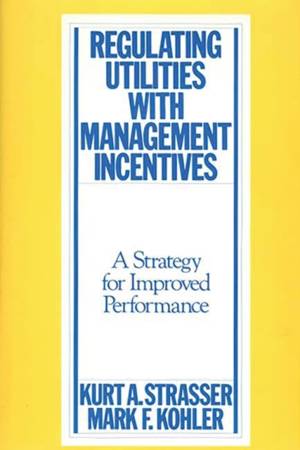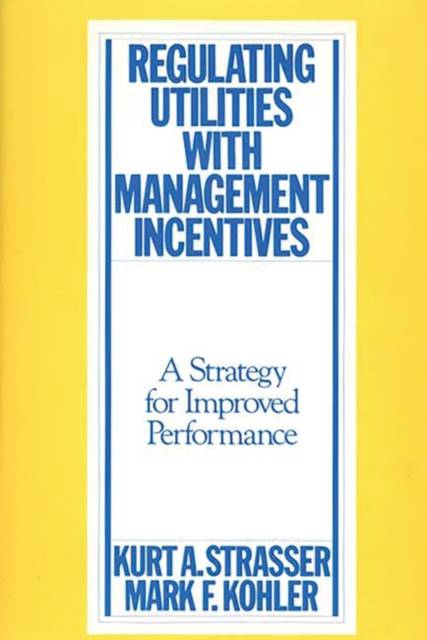
- Afhalen na 1 uur in een winkel met voorraad
- Gratis thuislevering in België
- Ruim aanbod met 7 miljoen producten
- Afhalen na 1 uur in een winkel met voorraad
- Gratis thuislevering in België
- Ruim aanbod met 7 miljoen producten
Regulating Utilities with Management Incentives
A Strategy for Improved Performance
Kurt A Strasser, Mark F KohlerOmschrijving
This book proposes a new approach to the government regulation of utilities. Arguing that traditional command-and-control regulation does not encourage efficient performance, Strasser and Kohler advocate the use of an incentive-based regulatory system and offer a practical, realistic strategy for the successful implementation of such plans within the context of utility regulation. The analysis is supported by a comprehensive survey of the relevant legal materials, an overview of the literature on organization theory and institutional economics, and a survey of the latest thinking on how incentives can most effectively be paid.
Strasser and Kohler begin by identifying problems associated with current regulatory techniques, demonstrating that disincentives are often built into the regulatory system. When that system has tried incentives, the authors show they have been applied in an ad hoc manner, further exacerbating the problem. In presenting the case for incentive-based regulation, the authors review the history of comprehensive incentive plans, look at what organization theory can teach us about using incentives as a regulatory strategy, and explore the effective use of incentive compensation by nonregulated companies. Strasser and Kohler then develop a strategy for implementing incentive plans in regulated utilities, showing that, in order to work, the plans must include the installation of clearly defined bonuses and penalties, specific standards of performance, the payment of bonuses to managers rather than shareholders, and reliable and complete measures of company performance. Policymakers, economists, public utility regulators, and attorneys involved in the complex arena of utility regulation will find Regulating Utilities with Management Incentives indispensable reading.Specificaties
Betrokkenen
- Auteur(s):
- Uitgeverij:
Inhoud
- Aantal bladzijden:
- 206
- Taal:
- Engels
- Reeks:
Eigenschappen
- Productcode (EAN):
- 9780899303758
- Verschijningsdatum:
- 11/12/1989
- Uitvoering:
- Hardcover
- Formaat:
- Genaaid
- Afmetingen:
- 156 mm x 234 mm
- Gewicht:
- 476 g

Alleen bij Standaard Boekhandel
Beoordelingen
We publiceren alleen reviews die voldoen aan de voorwaarden voor reviews. Bekijk onze voorwaarden voor reviews.












